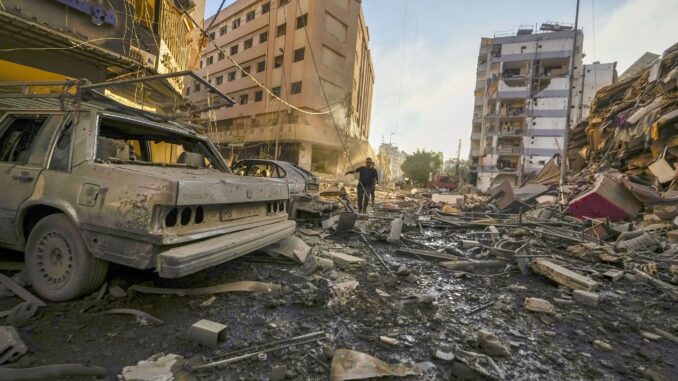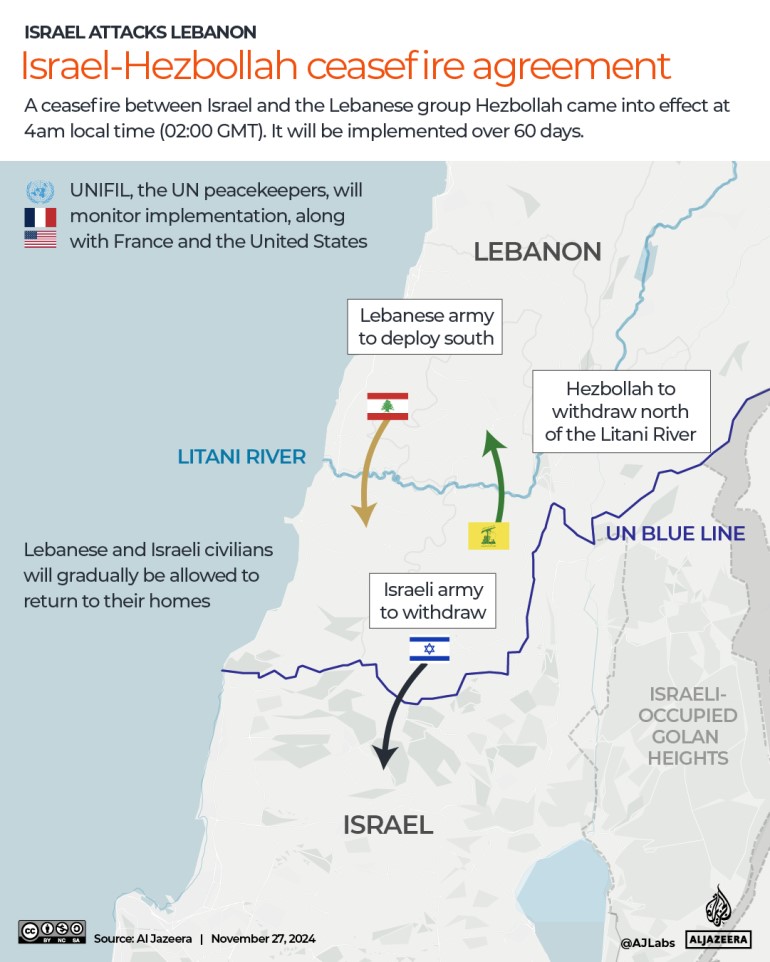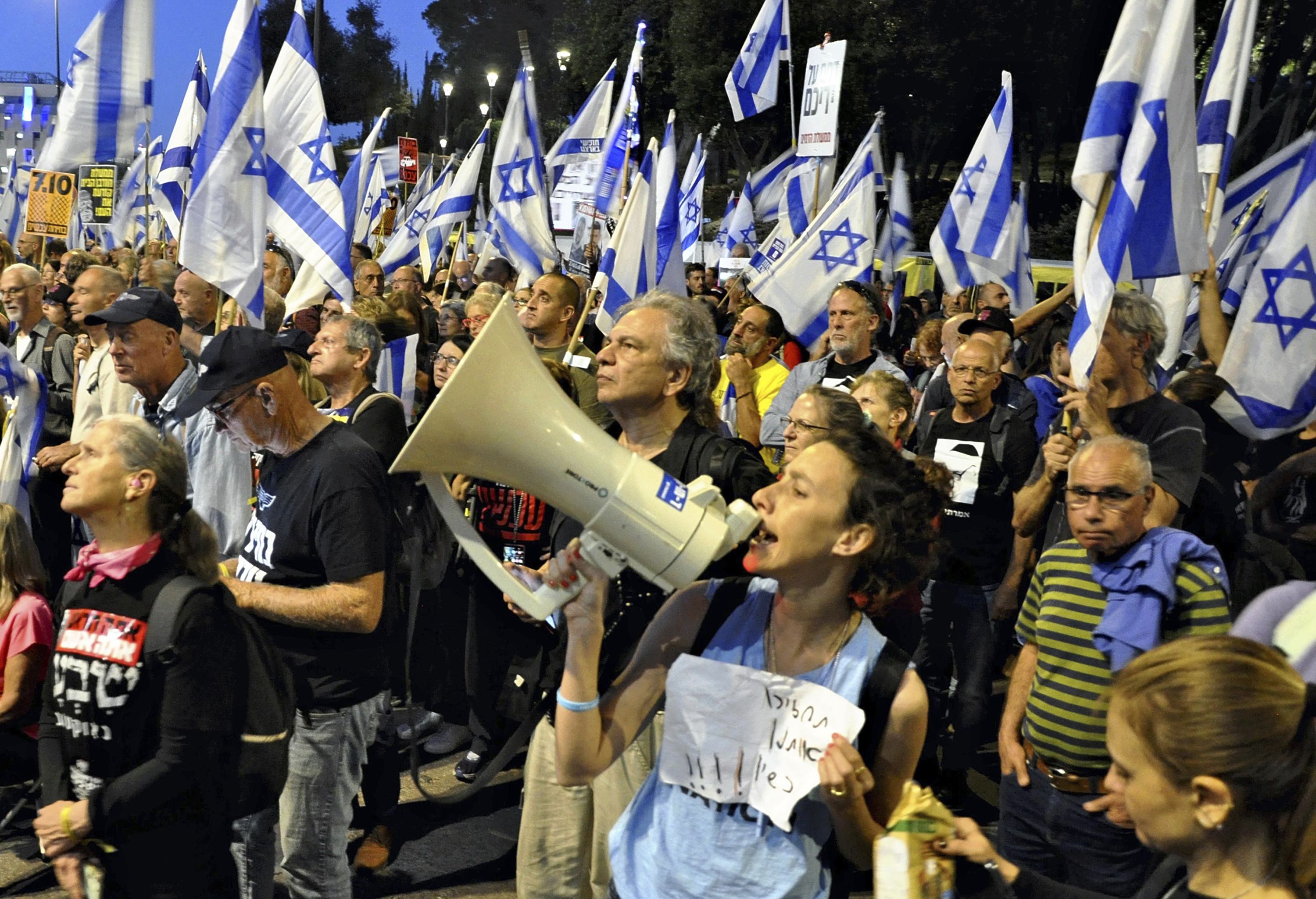
Last week’s ceasefire between the Israeli government and the Lebanese Shi’ite militant organization Hezbollah is fragile, and already at risk of collapse. Hezbollah and Israel have been engaged in their own front of the war in the Middle East since October 8th… one day after Hamas broke into Israel on October 7th 2023, igniting more than a year of war. But this October, a year later, Israel escalated the war with Hezbollah by launching a ground invasion of Lebanon. The destruction that followed sounded a cascade of alarms across the world, with fears that an escalation into Lebanon could risk exploding the conflict into an even larger regional war, pulling in more factions, even including Iran.
The ceasefire deal is meant to see Israel withdraw from Lebanon in 60 days, and see Hezbollah withdraw from the border region of Lebanon, and stay north of the Litani river. The Lebanese army is meant to police the gap between the two forces, with assistance from UN peacekeepers. Critically, both Israel and Hezbollah have already repeatedly violated the terms of the ceasefire, with justifications that the other side’s infractions forced their hands. Israeli defense minister Israel Katz now says that if the Lebanese army fails to enforce the ceasefire restrictions on Hezbollah, Israel will invade again – and this time, treat the Lebanese army as hostile.

The vulnerability of the current ceasefire extends beyond Israel’s relationship to Hezbollah. The ceasefire was only negotiated with Hezbollah, and never Hamas. While many have celebrated the possibility of the war cooling down, voices in the Palestinian movement have rightfully pointed out that this ceasefire allows the war in Gaza to continue unimpeded. As long as Israel remains a country at war, with a wartime economy and a call to service for its reservists, it remains a mobilized country, capable of continuing to prosecute a war, and expand that war as needed. A ceasefire that included Hamas would de-escalate the wider conflict in a way this ceasefire with Hezbollah cannot.
A wide range of critics both in and outside of Israel have alleged that Israeli Prime Minister Benjamin Netanyahu is prolonging the war in the Middle East for political gain. Netanyahu is the subject of a major corruption investigation in Israel, which sparked some of Israel’s most significant protests in its history in mid-2023. Netanyahu’s case has been delayed by the war, but will soon be resuming. There are also calls for a post-war investigation into the security failures of Israel that allowed the October 7th attack to happen. There are credible allegations that the Netanyahu administration bears significant blame for the October 7th attack. Critics point to the fact that Israel financially supported Hamas for decades, due to the fact its extremism made it a less sympathetic figure than the secular, West-Bank centered PLO. The Israeli government was also warned by a myriad of sources about an impending Hamas attack in the weeks, months, and days before – by Israeli intelligence, Israeli border guards, and even Egyptian intelligence.

Hezbollah too may have reasons to continue fighting. Hezbollah and Hamas are allies, united as proxies by Iran’s Axis of Resistance. From the beginning of Hezbollah’s involving in the war, it stated its motivation was to fight in “solidarity” with Hamas and the Palestinian people. Though by many accounts Hezbollah has been enormously weakened by Israel’s assault on Lebanon, it is still ultimately an ally of Hamas, and may see necessity in intervening again in the war, if it means keeping an alliance intact.
“We are currently in a ceasefire – I note – a ceasefire, not the end of the war,” Netanyahu said this week. It is far from certain if the ceasefire between Israel and Hezbollah will last. For now, any celebration of an end to the current bloodshed is premature.

Be the first to comment